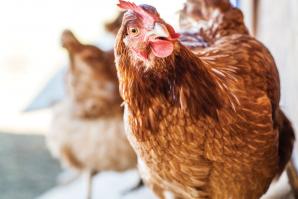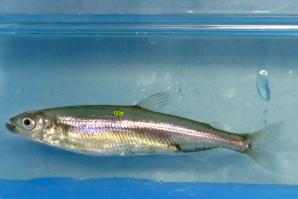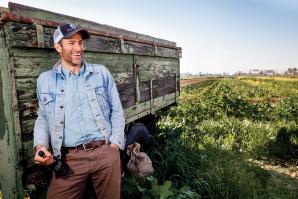
The New Hip Chick
With the spotlight on commercial egg farming, will the pasture-raised bird steal the show?
The implementation of California’s Proposition 2, which expanded space requirements for hens that produce eggs sold in California, has had ripple effects impacting producers, distributors and consumers throughout the nation. But as animal rights activists and demanding consumers realize the law hasn’t reflected their ideals, and as the price gap between commercial and specialty eggs narrows, will the elite pasture-raised egg enjoy a rise in popularity?

Delta Smelt Nearing Extinction
A U.C. Davis Lab could be the last refuge for the beleaguered, belittled fish
Tien-Chieh Hung, the director of the Fish Conservation and Culture Laboratory,, says the facility’s fish could serve as a sort of seed bank for repopulating the wild population, should conditions in the Delta ever improve.

Summer Feeding
Local libraries are valuable tools in addressing issues of food access
Your next visit to the public library might not be to check out a book. Libraries are becoming critical agents in a sprouting local food movement, so you might instead bite into an actual meal, join a cooking class or even check out garden seeds.

Groves & Fishes
There is water war brewing between farmers and fisherman
Facing epic drought conditions, Gov. Jerry Brown called this month for mandatory cutbacks on urban water use statewide. But the ag industry, which uses 80 percent of the state’s water, is exempted. This decision has struck a cord with environmentalists and fishermen who fear the drought will compromise aquatic species — and their livelihoods.

Legacy Crop
With J-E Paino at the helm, can Solano County lead the region to a rebirth of hops?
Paino has made a commitment to using all local ingredients in Ruhstaller’s brews, going so far as to grow his own hops yard. But it hasn’t been that easy. So what’s standing in the way of the Capital Region’s hops renaissance?

Status Check: Ygrene Energy Fund
CEO Stacey Lawson on Ygrene Works and the great green funding expansion
Lawson says Ygrene has approved $60 million in loans for energy upgrades in Sacramento, Yolo and Butte counties and estimates that installed upgrades will result in the reduction of 40,000 metric tons of CO2 over their lifetimes.

It’s Hip to Be a Foodie
What dressing for success means in the food movement
To find the kind of innovative employees needed to continue pushing the food movement forward, it’s important to look as much as listen. For instance:
“This position requires a vegetable costume as occasional work attire.”

Old Roots, New Branches
Bariani Olive Oil — the elixir of the gods
Sebastian Bariani is in heaven, standing in his family’s olive grove in the Dunnigan Hills. The winter day is mild, a blue sky caps the rolling green terrain. He reaches down and gently bends the branch of a Manzanillo olive tree to demonstrate how the trees will soon be pruned, explaining that the blossoms for the next crop can come only from new growth.

Fishy Repairs: The Salmon and Steelhead Restoration Project
As part of the Salmon and Steelhead Restoration Project, workers haul rubble to the shores of the American River just downstream from the Nimbus Dam, in an effort to restore streambeds.

Fish, Out of Water
Prop. 1 channels billions of dollars to California’s water needs — but will it hurt or help endangered salmon?
On a warm August afternoon, a small fleet of tractors are busy in what seems to be an effort to smother the American River with rubble. But what appears to be the beginning of a new development project is nothing of the sort. Rather, these machines are trying to save fish.


